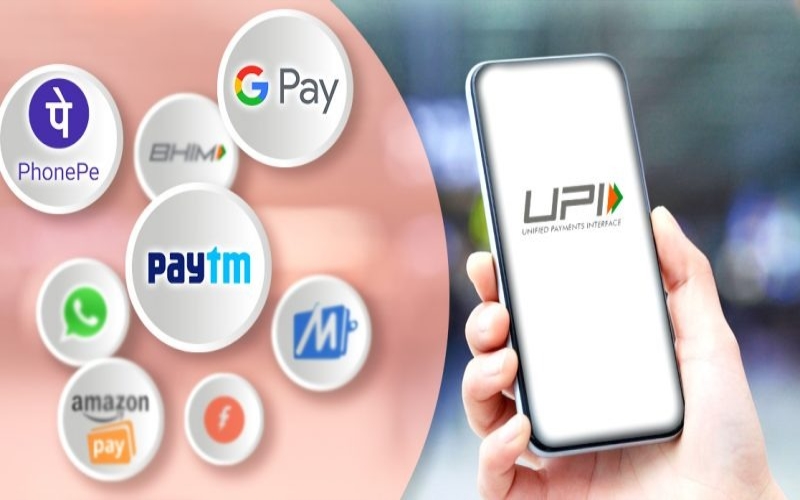
Introduction
The digital age has completely changed the way we transact thanks to the Unified Payments Interface (UPI). Payments are now faster and more safe because of its simplification. However, behind the scenes, several components work together to ensure smooth UPI transactions. One such component is the Payment Service Provider (PSP) in UPI. In this article, we will decode what PSP in UPI is and its crucial role in UPI payment gateways.
What is PSP in UPI?
PSPs facilitate UPI transactions by providing the technology and infrastructure required for seamless fund transfers. PSPs are authorised entities that ensure secure, reliable, and efficient payment processing. They are essential to the UPI payment gateway ecosystem since they let users send and receive money across several channels, like websites and mobile apps. As we know what PSP in UPI is all about, let’s understand what the different types of PSP in UPI are.
Types of PSPs in UPI
There are different types of PSPs in UPI, including banks, fintech companies, and other authorised entities. These PSPs are responsible for creating and maintaining UPI payment gateways, which are the platforms that users interact with when making UPI transactions.
PSPs can also offer a range of services, including merchant onboarding, fund settlement, transaction monitoring, and security features. They act as intermediaries that connect various stakeholders in the UPI network.
How PSPs Work in UPI?
PSPs in UPI work by providing the infrastructure for UPI transactions. When a user initiates a UPI transaction, the PSP facilitates the process by connecting the user’s bank to the recipient’s bank. This connection allows the seamless transfer of funds.
The PSP also manages the security of the transaction, ensuring that the user’s sensitive information is protected. They use encryption, authentication, and authorisation protocols to make UPI transactions safe and secure.
Also read :Payment Gateways :Facilitating Digital payments
The Role in UPI Payment Gateways
PSPs play a fundamental role in building and maintaining UPI payment gateways. These gateways are the user-facing platforms that enable individuals and businesses to initiate UPI transactions. When you use a UPI-enabled mobile app or website to send money or make a payment, you are interacting with a UPI payment gateway created by a PSP.
The UPI payment gateway is responsible for several critical functions, including:
- User Authentication: Verifying the user’s identity to ensure that only authorised individuals can perform transactions.
- Transaction Authorization: Confirming the availability of funds and approving or declining transactions based on user instructions.
- Transfer of Funds: Facilitating the secure transfer of money from the user’s bank account to the recipient’s account.
- Transaction Records: Maintaining records of all UPI transactions, ensuring transparency and accountability.
- Error Handling: Managing errors, disputes, and failed transactions and providing solutions for resolution.
PSPs invest in creating robust and user-friendly payment gateways, which are critical to the success and widespread adoption of UPI. The following pointers will give you an idea of a broader perspective on PSP’s role in UPI:
-
Merchant Onboarding
PSPs also play a crucial role in merchant onboarding. Businesses that want to accept UPI payments need to integrate with a UPI payment gateway. PSPs simplify this process by offering solutions that allow merchants to accept UPI payments from customers.
Merchant onboarding includes tasks such as creating a merchant account, setting up payment links or QR codes, and providing businesses with the necessary tools to process UPI transactions. This service is invaluable for small and large businesses alike, as it enables them to leverage the benefits of UPI for accepting payments.
-
Fund Settlement
Another significant role of PSPs in UPI is fund settlement. The PSP makes sure that money is transmitted safely from the sender’s bank to the recipient’s bank when a UPI transaction is started. PSPs oversee the settlement procedure, which entails settling money between banks, managing disputes, and reconciling transactions.
Fund settlement is crucial for maintaining the trust and integrity of the UPI system. PSPs ensure that money is moved swiftly and precisely, reducing the possibility of mistakes and delays.
-
Transaction Monitoring and Security
PSPs are responsible for monitoring UPI transactions in real time. They employ advanced security measures to detect and prevent fraudulent activities, ensuring the safety of UPI users. This entails keeping an eye out for odd or suspicious transactions and protecting important user information with robust encryption.
To fight financial fraud, PSPs collaborate with banks, regulators, and law enforcement organisations. They are instrumental in maintaining the integrity and security of UPI transactions.
Conclusion
In the world of digital payments, the role of PSPs in UPI cannot be overstated. These intermediaries are the backbone of the UPI payment gateway, providing the infrastructure, security, and services that enable seamless fund transfers for millions of users in India.
PSPs are instrumental in building and maintaining UPI payment gateways, which are the user-facing platforms through which transactions occur. They facilitate merchant onboarding, ensuring that businesses can accept UPI payments. PSPs also manage fund settlement, transaction monitoring, and security, making UPI transactions safe, efficient, and reliable.
As the UPI ecosystem continues to grow and evolve, PSPs will play a crucial role in its expansion, driving the adoption of digital payments across the nation and contributing to India’s vision of a less-cash economy.
